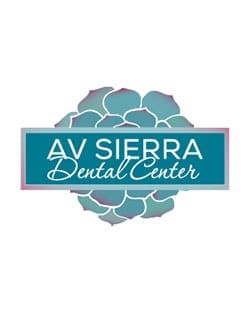Teaching Kids to Care for Their Teeth

How to Teach Kids to Care for Their Teeth (and a Little about Why and When, Too) If you’re a parent, you’ve probably tried every type of motivation—reasoning, cajoling, nagging, threatening punishments, even bribery—to get your kids to do things that they just really need to do. Eating vegetables. Getting dressed for school. Going to bed. And yes, brushing their teeth. Oral Hygiene Is Important Good oral hygiene is about more than a winning smile. It contributes to our sense of self-esteem and confidence—and what parent doesn’t want a child who’s happy, confident, and proud of him or herself? What you might not know is that oral health contributes greatly to your—and your child’s—long-term holistic health. Poor oral health is linked to diseases including obesity, diabetes, and even heart disease. Encouraging your children to take care of their teeth sets them up for a lifetime of good oral health—and good health in general. Start early—but focus on the big picture One way to make sure children take oral hygiene seriously is by starting early. Wipe their gums with a soft washcloth after bottle feedings, and once their baby teeth come in, brush them twice a day with a soft toothbrush and water. Toddlers aged two to four can begin brushing by themselves, preferably for two minutes, but don’t use fluoride toothpaste until your child knows not to swallow it. Start flossing your children’s teeth around the same time, as their teeth start to fit closely together. If you haven’t already brought them in for a first dentist’s visit, now is the time to start as well. Children don’t have the coordination to do as thorough a job as adults. They may not even be able to use dental floss until they’re 10 or so.; (Floss picks are easier for young kids.). But the key is to begin building good oral hygiene habits early on in life. Make sure your children understand the basics: Brush twice a day. Floss every day. Avoid sugary foods and drinks. Visit a dentist regularly for checkups. Set a good example. “Do what I say, not what I do.” There’s always a temptation to tell others—kids, especially—to behave a certain way, even if we don’t always do so ourselves. Be kind to strangers. Share. Be generous. But children learn more by watching their parents and friends every day. If you take good care of your teeth, they’ll learn implicitly that oral hygiene is important and worth practicing. It’s understandable that bathroom routines are “private time,” but don’t be shy about brushing or flossing in front of little ones. They’ll pick up good habits that way. Make it fun! What parent hasn’t turned a boring or unpleasant chore into some sort of a game in order to convince a child to participate? The answer: zero. And that’s a fact. Here are some simple ways you can turn oral hygiene into something more fun for kids: Let Them Pick Their Toothbrush Kids often feel like they don’t have choices—so let them pick out a toothbrush with their favorite character on it or a toothpaste flavor they like. There are so many cute character-themed toothbrushes on the market that it should be easy to find a fun toothbrush to help make brushing enjoyable. Having a fun brush will help kids be more invested in brushing their teeth. You may even find a character-themed toothbrush you like for yourself. Play Creative Dental Games Turn brushing their teeth into something fun instead of a nightly chore. Encourage them to brush their stuffed toys’ teeth while telling them how important it is to brush and floss. Colgate has several dental game ideas that teach kids the importance of caring for their teeth and gums. Read Books About Teeth, Cleaning Teeth and Visiting the Dentist Many kids love bedtime stories. Use this fun activity to help prepare them to visit the dentist by reading them a story about dental care. Reward Them When you child does a good job brushing and flossing give them a reward. Candy may not be the best option here but perhaps you can give them a quarter or let them pick the 2nd book to read at bedtime. Perhaps a dental book? Remember, we’re here to help. Day-to-day hygiene routines are the foundation of lifelong oral health, so there’s no substitute for the time you spend with your children, teaching them the fundamentals of brushing and flossing. But at AV Sierra Dental Center, we’re here to help. When you bring your child in for a visit, let us know if you have any concerns or issues you’d like to discuss. We want to make sure that your kids have a positive, friendly, age-appropriate dental experience each and every time they come to our office.
Conquer Toothaches Once and For All

There is nothing worse than feeling the pain of a toothache creep into your mouth. In honor of National Toothache Day (February 9th), let us delve into toothache symptoms, what it could mean, and some things you can do to help with pain, as well as prevent toothaches from happening. Symptoms Since a toothache is a common problem, it comes with a lot of symptoms too. Some of these include: Throbbing pain Sharp pain Pain when pressure is applied Pain when exposed to hot or cold temperatures If any of these symptoms last longer than 1-2 days, it’s time to see your dentist for further examination. Causes Unfortunately, it can be hard to pinpoint what’s causing your toothache since so many issues can cause them. Tooth Decay and cavities are very common. When you eat foods, especially ones that have a lot of sugar, you’re feeding the bacteria in your mouth. As the bacteria eat, they produce acid, which damages tooth enamel. Typically, you won’t feel pain until the acid eats past your enamel and reaches the nerves underneath. If you are to the point where you feel pain, you will most likely need a filling, crown, or root canal (depending on the amount of damage). How to Prevent Cavities Avoid sugary foods. One of the best solutions is to not give the bacteria what they want. Avoiding foods that are sugary or made of simple carbohydrates will give them less fuel to create the acid that damages your teeth. Use products that have fluoride. Most toothpastes already contain fluoride, and you can top off your dental hygiene routine by rinsing with a fluoride mouthwash. Fluoride can even help rebuild lost enamel caused by tooth decay. Brush and floss daily. This prevents plaque from turning into tartar, which causes tooth decay and gum disease (gingivitis). Additionally, visit your dentist to keep up with your routine teeth cleanings. Bruxism/Teeth Grinding: Bruxism (clenching or grinding your teeth) can damage your teeth. You might be experiencing bruxism if you have sore teeth; a sore or swollen jaw; significant tooth wear; or find yourself clenching your teeth without having been aware of doing so. If you have these symptoms, there a few things you can to do help prevent this from continuing. Get fitted with a night guard. Your dentist can diagnose that you grind your teeth while you sleep, and prescribe the proper type of mouth protection to prevent pain and damage to your teeth. Adjust your bite. Your bite may be causing only certain teeth to touch, putting more strain on those particular spots. Further examination by your dentist will determine what actions need to be taken from there. Relax! Stress can play a huge factor in clenching your teeth. See our previous blog post for more information on this subject. Cracked tooth or missing filling: Cracked teeth—or a lost filling or crown—can expose the inner tooth pulp to irritation by food and hot or cold temperatures. If left untreated for too long, cracks can grow, creating a split tooth and making a fix unlikely. To avoid cracked teeth, follow these tips: Don’t chew on hard foods, like ice cubes, hard candies, or other objects like pens or jewelry. Wear mouth protection when playing physical sports. If you notice a crack or missing hardware, set up a time to visit your doctor as soon as possible to prevent any further damage. Until you can see your dentist, there are few things you can do to help with the pain. One option is to take over-the-counter anti-inflammatory medicines like ibuprofen or acetaminophen. (Always read the directions to ensure you are able to take it!) You can also put clove oil on a cotton swab and apply it to the affected area. Apply a cold press if you notice swelling. Remember, these are just temporary solutions to your pain, and you will need to go to your dentist if the pain persists for more than 1-2 days.
Debunking Dental Myths

When you think about myths, chances are your first reaction is to think about the classics—Greek myths with monsters and gods, classic American myths like Paul Bunyan or Rip Van Winkle, or maybe even urban legends. Historically, myths helped our ancestors make sense of the world and explain why they thought and acted the way they did. But not all myths are ancient. We still create myths today, and they serve the same purpose that ancient myths did. We use them to understand complex topics and to justify our choices—at times for good, and at times not so good reasons. There are myths about almost any topic if you bother to look—and that includes dentistry. Let’s look at five dental myths, unpack where they come from, and determine if we’d be better off telling these stories to our children or doing away with them altogether. George Washington had wooden teeth Right there along with leading the Revolutionary Army, being first president of the USA, and the cherry tree (false!), elementary school students learn about George Washington and his wooden dentures. It’s true that dental problems plagued Washington. He had his first tooth extracted when he was 24, and by the time he became president in 1789, he only had one tooth left. He wore many dental prostheses during his life—but they were the most advanced dental technology of his time, and were made of ivory, gold, metal, and even human teeth. The “wooden” myth may have arisen because ivory dentures become stained over time. Verdict: False… but truth can be more disturbing than fiction. Brush your teeth right after every meal Let’s look at some basic assumptions about oral hygiene that are true. First, food particles on your teeth can lead to cavities. Second, brushing your teeth removes food particles. The logical conclusion, of course, is that getting the food off your teeth faster must be better. Well, Mr. Spock, you may be logical—but you’re wrong! Your mouth is already working to protect your teeth—with tooth enamel (the hardest substance in your body) and saliva. The acids in saliva work to break down food—but they also temporarily soften your tooth enamel. Brushing too soon after meals can actually damage your tooth enamel. Give yourself a little break, and wait 30 minutes after meals before you brush. Verdict: False… but with the best motivation. Whitening your teeth weakens them Hmm… bathing your teeth in chemicals, even relatively benign ones, doesn’t sound like a good idea. I mean everyone’s heard the one about the tooth dissolving in a cup of Coca-Cola, right? (Don’t worry, we’re getting to that one next.) Therefore whitening—with trays or even strips—must weaken them, right? Technically, no. Whitening strips or trays use hydrogen peroxide or carbamide peroxide to remove stains on the teeth through the process of oxidization. When overused, they can remove 1-2 nanometers of enamel from your teeth, which isn’t great—but then again, a hair is about 80 to 100 thousand nanometers thick, so we’re splitting hairs. Into about 40,000 parts. Verdict: False… because we think it’s ok to round 0.000025% down to zero. Leave a tooth in Coke and it’ll dissolve overnight We can’t do a better job in 100 words than the myth-debunkers extraordinaire at Snopes.com can do in 700, but let’s give it a try. Coke is acidic—but not acidic enough to dissolve a tooth overnight. The acids in coke could eventually dissolve a tooth, but so could the acids in a glass of orange juice. The implication—that we shouldn’t drink Coke because it’s bad for our teeth—is based on a false premise. We drink Coke, not hold it in our mouth for several days at a time. You could argue that most people can do without the hundred plus calories in a serving of soda, but that’s not a myth. It’s a fact. Verdict: False… but that doesn’t mean it’s not bad for you. The Tooth Fairy The idea that a fairy wants to collect children’s teeth so badly it’s willing to pay for them is, on the surface, ridiculous. With more than 7 billion people on the planet… how many teeth can a single fairy—or even a society of tooth fairies—want? But then again, who would believe that a single fat man could traverse the globe in one night, in a sleigh powered by reindeer, delivering gifts to children by climbing down their chimneys? Science can explain most things, perhaps even the lengths people go to please their children, but do we really want to? Verdict: True… for the children.
So You Burnt Your Tongue, What’s Next?

So You Burnt Your Tongue, What’s Next? Foods and drinks are a huge part of our daily life. Not only do we need them to live, but meals are a huge part of every culture. Let’s paint a scene for you. You are out with a group of friends at a pizza parlor. The aroma of wood baked pizza fills your nose and makes your stomach gurgle with anticipation. You order your favorite type of pizza and patiently wait for it to come out. After some time passes, you eye your waiter heading towards your table with your pizza. As he sets it down in front of you, he warns, “Careful, this just came out of the oven.” Overcome with excitement, you ignore his cautionary advice. You bite down– The cheese is scalding hot. At this point, you inhale and exhale repeatedly to try and cool the bite of pizza off. You debate if you should spit it out, but you don’t want to be gross in front of your friends. It’s too late. The damage to your tongue is done. What To Do After You Burn Your Tongue Now that your favorite pizza parlor has implemented a scorched earth strategy on your tongue, it’s time to find ways to soothe the damage done. Just like if you burn another part of your body, applying something cold as soon as possible can help mitigate pain. Sucking on an ice cube will help. Put granulated sugar on your tongue and press it on the roof of your mouth. These instructions might seem ironic coming from a dentist, but this trick will help with the pain. But no, this doesn’t give you an excuse to eat a Snickers bar. That’s on you. Don’t add inSALT to injury. Seriously, avoid eating hot, salty, acidic, or spicy foods. These foods can irritate your burn, and hot foods can add to the injury as well. Until your tongue heals stick with cold pizza. If your tongue still hurts after these remedies, consider taking medications like acetaminophen or ibuprofen. These will help with swelling and pain. If you are unsure if you can take these, make sure you check with your doctor first. If your tongue is still in pain after about 7 days, seek medical attention from your local doctor or dentist. Degrees Of Burns On Your Tongue While this blog offers solutions to help burnt tongues, if you believe you have a second or third degree burn, please go seek medical attention to ensure you have the best possible care. First-Degree: Minor damage, tongue may look a little red Second-Degree: Blisters may form on the tongue and is typically more painful Third-Degree: White, blackened, or charred tissue, may be numb or have severe pain Unless your pizzeria uses a blast furnace, thankfully you are unlikely to get a third degree burn on your tongue. Additional Information about Tongue Burns Depending on the severity of your burn, you may have a metallic taste in your mouth. Do not worry; this should go away as your burn heals. Taste buds can be burnt off, but will grow back within 10-14 days. While having a burnt tongue isn’t particularly dangerous, it can be a nuisance for some time. The best way to prevent burns is to be wary around hot items; test nibbles and sips will do you wonders. When the inevitable burnt tongue does happen, use the remedies above to make your time with a burnt tongue a little more bearable.
Tooth Sensitivity to Cold

Ouch! Maybe it’s a fresh smoothie, a spoonful of ice cream, or even just a sip of ice water—but there it is, throbbing tooth pain. There are many reasons why you might be experiencing tooth sensitivity to cold. Fortunately, you can take several steps to remedy this yourself, including checking with your dentist. Other symptoms often accompany sensitivity to cold, including: Sensitivity to hot foods Pain when biting or chewing Persistent dull or throbbing tooth pain But what conditions cause these kinds of tooth sensitivity? Exposed Roots Tooth enamel, the hardest substance in your body, covers your tooth above the gumline. However, the root of your tooth, the part normally covered by your gums, does not have this protective layer. If you don’t brush and floss regularly—or if you brush and floss too vigorously—your gums may recede, exposing the roots of one or more of your teeth. If you have exposed roots, the best course of action is to follow general oral hygiene. Continue brushing and flossing, but use a soft toothbrush and fluoride toothpaste specifically made for sensitive teeth. If the pain continues, though, make sure to see your dentist. Tooth Decay Small cavities can also become sensitive to cold food or drinks. Cavities occur in the enamel itself, and expose the nerve inside your tooth to cold, heat, and other sources of discomfort. While you should continue flossing and brushing, you should see a dentist to diagnose and treat your condition. If the cavity is small, a dentist can remove the decayed area and fill the tooth. If it’s more serious, you may need a root canal to clean out the decay, disinfect the root, and seal the tooth. Sensitivity after Dental Work Sometimes dental work can temporarily cause your teeth to become sensitive to cold or hot foods, from a few days to a week or longer if you’ve had a filling or a crown placed. In these cases, over the counter pain relievers like aspirin, acetaminophen, or ibuprofen should bring you relief. But if the pain persists or worsens, definitely contact your dentist! How Can I Get Rid of Tooth Pain? In general, you can address temporary tooth sensitivity to cold with the standard elements of good oral hygiene: regular brushing and flossing, as well as routine preventive care visits to your dentist. Consider using toothpaste specifically made for sensitive teeth or adding a fluoride mouth rinse to your daily routine. However, if your sensitivity lingers, it could indicate that you have a more serious dental condition. The pulp—the interior of your teeth—could be damaged, either from long-term tooth decay or an injury. It’s important to see a dentist before you develop an infection that could put your tooth at risk. If you have any concerns over increased or recent tooth sensitivity to cold—or heat— AV Sierra Dental Center is always here to help. Make an appointment and get your tooth checked out before it has a chance to turn into something more serious.
